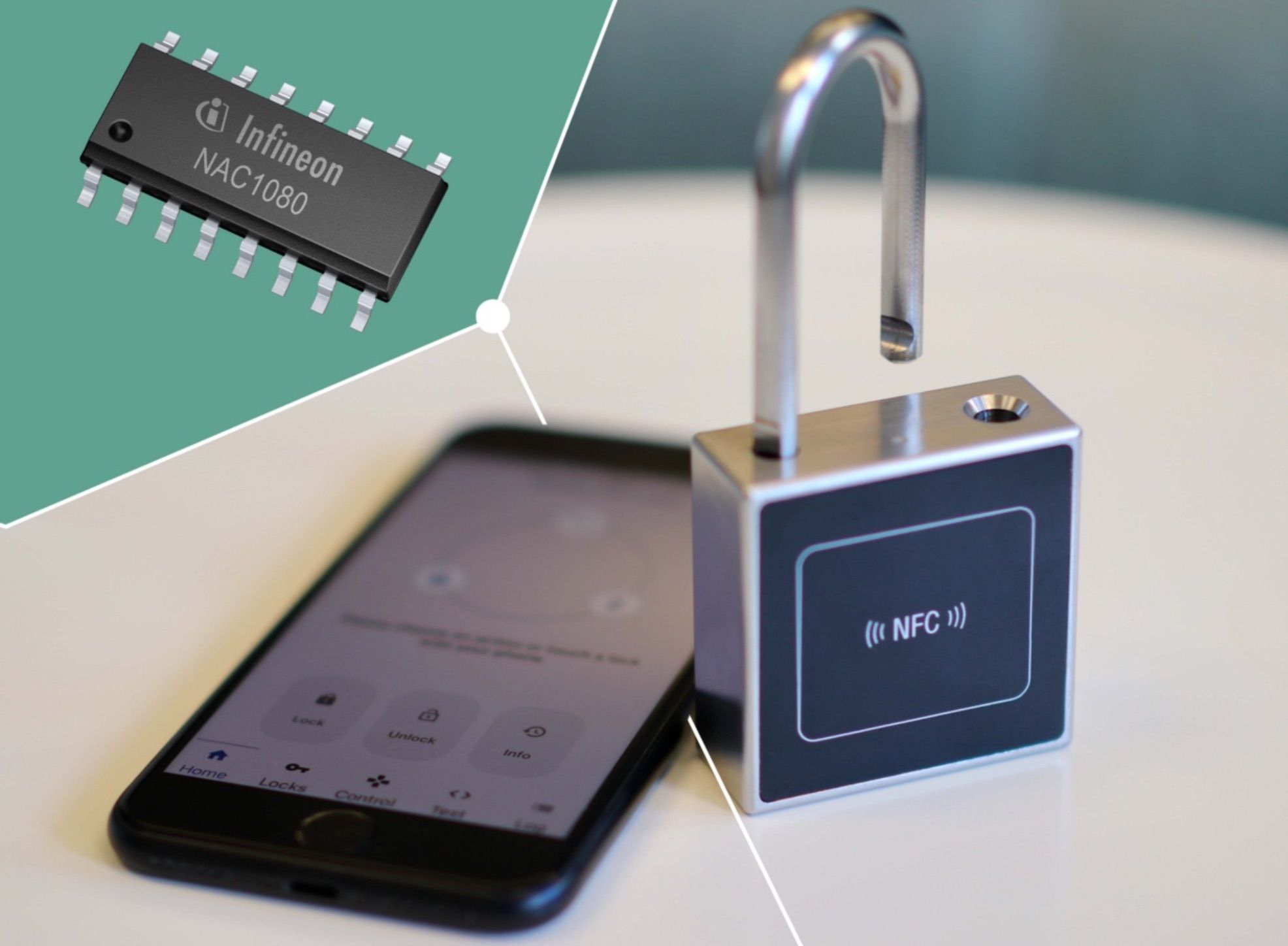Connected locks are a great invention, and there are already many superb products out there. However, most of the broadly available smart locks share the same caveat: They only work with batteries or with another power source. Once power runs out, they need to be opened like an ordinary lock, so you’d still better always carry your keys with you. German semiconductor company Infineon wants to do away with this. The company has introduced a chip that can open simple padlocks with nothing but the power harvested from your phone’s NFC chip.
Infineon’s new microcontroller is sold to other manufacturers with a very memorable NAC1080 name. It’s based on a 32-bit ARM Cortex M0 chip and features a built-in NFC frontend. Coupled with capacitors (which basically act like temporary batteries) that can pick up the charge generated by an NFC reader like the one found on your phone, this chip allows for battery-less smart locks and other small scale uses.
Thanks to support for AES128 and true random number generation, it’s clear that the product is mostly meant for locks, though. Even then, Infineon makes clear that it’s more useful for small-scale applications like office furniture, lockers in hospitals and fitness studios, bicycle locks, or mailboxes. While not mentioned explicitly by the company itself, it’s also safe to assume that you will need to use a battery-powered device like your phone to unlock smart locks of this kind. After all, a passive NFC tag can’t generate the electricity needed to open the lock in question. Infineon adds that it can be used to power passive tire pressure sensors for bicycles, too.
While Infineon thinks that the technology isn’t feasible for heavier or more complicated locks, the chip could still serve as a backup for battery-powered locks. That way, it wouldn’t be a problem if you displace your keys right when your smart lock runs out of battery. The only downside is that you might need to hold your phone to your lock for a longer period of time than usual to generate enough power for a heavier lock.
Most smart locks on the market still require batteries these days, but there are a few examples that work just like this showcased technology here. The Verge spotted battery-free electromechanical cylindrical locks for the European market from iLOQ as well as some padlocks intended for China that have long offered this kind of functionality. Still, the more options there are for manufacturers, the more likely it will be that battery-less smart locks will make it to more places around the world. Until then, there are a few things you need to be aware of when you want to shop for a smart lock.


